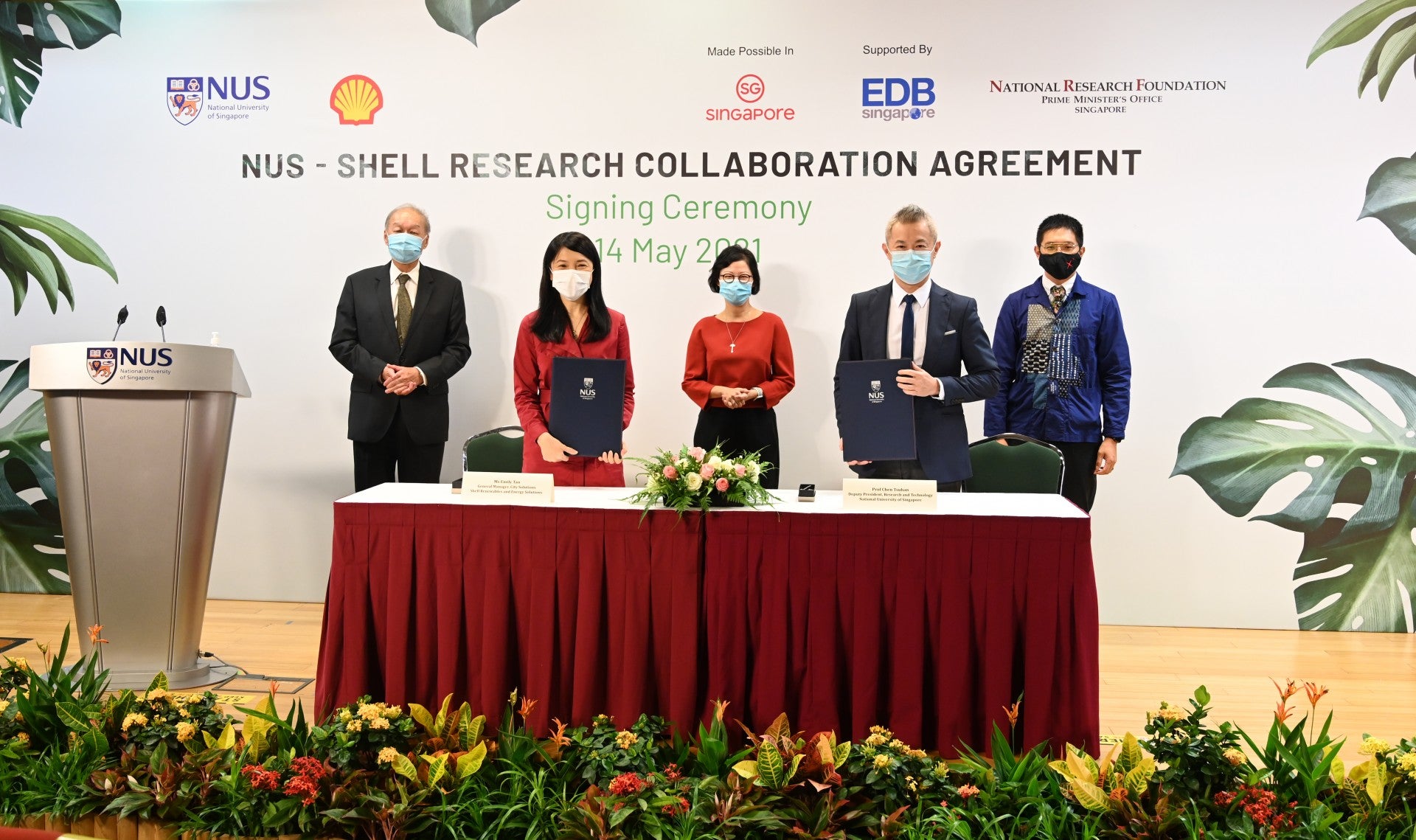
Energy giant Shell and the National University of Singapore (NUS) have partnered to advance decarbonisation solutions.
Their researchers will jointly work to develop processes that would make use of carbon dioxide emitted from industrial processes to produce fuels and chemicals.
The three-year $3.4m (S$4.6m) research programme is backed by S$4.6m funding from the National Research Foundation Singapore (NRF).
As part of the research programme, the two parties intend to electrochemically produce ethanol and n-propanol from CO₂.
The ethanol and n-propanol can either be blended with gasoline to produce cleaner-burning fuels or be further be dehydrated to yield ethylene and propylene.
How well do you really know your competitors?
Access the most comprehensive Company Profiles on the market, powered by GlobalData. Save hours of research. Gain competitive edge.

Thank you!
Your download email will arrive shortly
Not ready to buy yet? Download a free sample
We are confident about the unique quality of our Company Profiles. However, we want you to make the most beneficial decision for your business, so we offer a free sample that you can download by submitting the below form
By GlobalDataEthylene and propylene are said to be the basic building blocks for plastics.
The electrochemical reduction of CO₂ is claimed to be an attractive strategy to utilise and convert CO₂ to produce fuel and useful chemicals.
NUS said that current methods lack the ability to produce yields that can address industrial needs.
In order to help bridge this gap, a team led by NUS chemistry department associate professor Jason Yeo will focus on discovering new catalysts and develop eco-friendly, commercially viable processes.
NUS research and technology deputy president Chen Tsuha said: “Carbon dioxide is a major cause of global warming. Converting it into useful products is a promising strategy to mitigate carbon emissions and close the carbon cycle.
“The innovative and commercially viable solutions generated through this research programme will help to build a path for a greener future for generations to come.”
Additionally, Shell will undertake analyses to assess the techno-economic and environmental impact of the NUS team-developed processes.
The research programme is expected to contribute to Shell’s 2050 net-zero emissions energy business.
Shell is aiming to cut its CO₂ emissions at its Singapore operations by about a third within a decade.




